TechRadar Verdict
For the price, the MSI GS65 Stealth is one of the best gaming laptops you can buy today. This is officially the most impressive Nvidia Max-Q gaming laptop that we’ve tested to date, outclassing most rivals by trouncing them in design and style.
Pros
- +
Attractive, subtle design
- +
Gorgeous, fast display
- +
Excellent performance
- +
Effective thermal management
Cons
- -
Underside gets burning hot
- -
Forthcoming biometric login
- -
Poor native audio
Why you can trust TechRadar
With the MSI GS65 Stealth (2018), MSI has at long last elevated its leading line of laptops to elite status, making the absolute best of the technology afforded it. The result is a sleek, portable 15-inch laptop fitted in a 14-inch device that sees you through high-end gaming as well as intensive productivity work without breaking the piggy bank.
The MSI GS65 Stealth (2018) gaming laptop has brought immense power in an understated yet attractive package unlike never before, earning our coveted Editor’s Choice award. But, we like it so much that we’ve also named it the best MSI gaming laptop of 2020.
If you’re looking for the ultimate crowd pleaser laptop, you’ve just found it in the MSI GS65 Stealth (2018) – and for cheaper than key competitors.
- Buying Guide: 15 best laptops for most people in 2019
- Buying Guide: 10 best Gaming laptops 2019
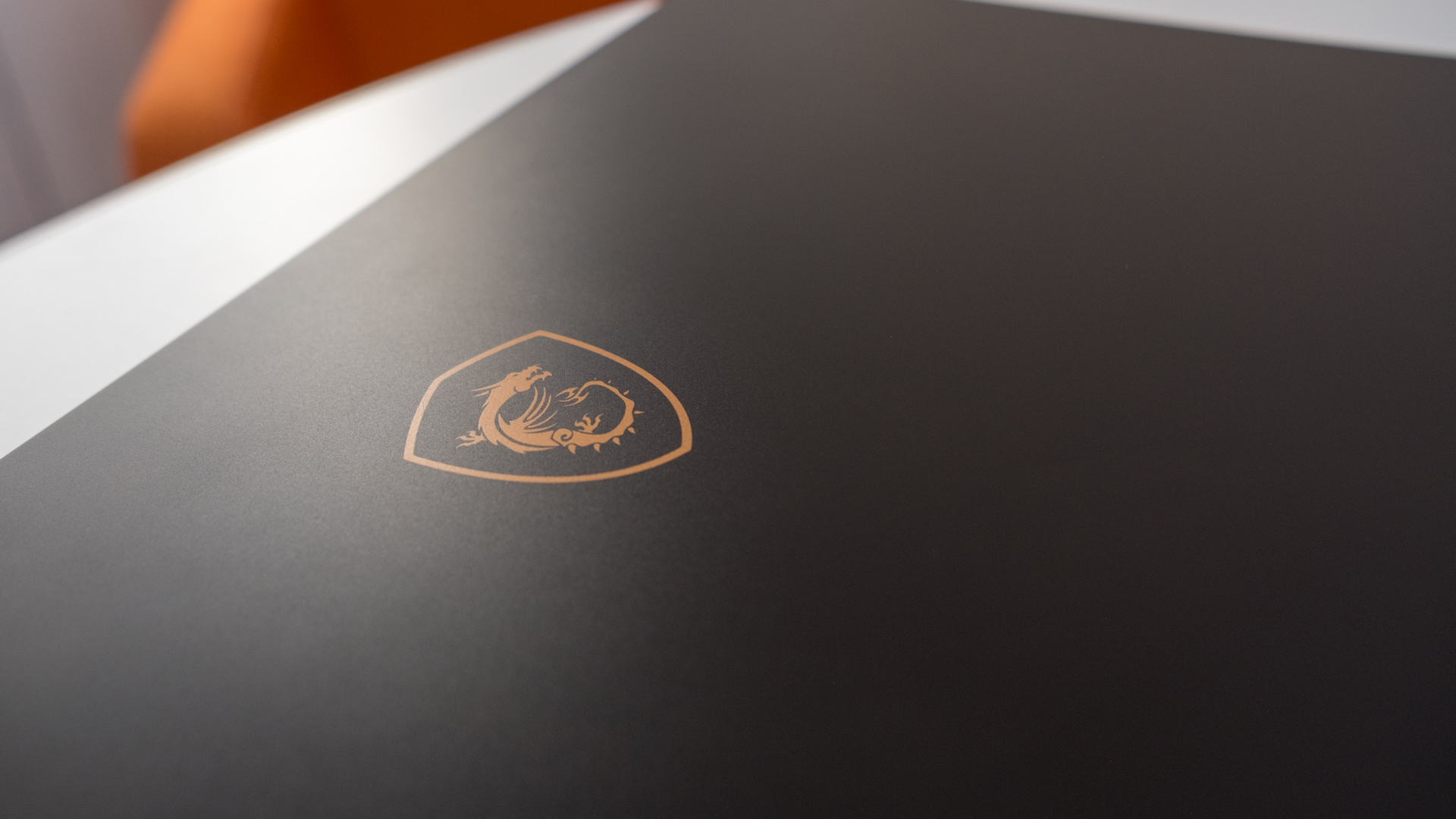
Here is the MSI GS65 Stealth configuration sent to TechRadar for review:
CPU: 3.9GHz Intel Core i7-8750H (quad-core, 9MB cache, up to 4.2GHz)
Graphics: Nvidia GeForce GTX 1070 (8GB GDDR5, Max-Q)
RAM: 16GB DDR4 (8GB x 2, 2,400MHz)
Screen: 15.6-inch FHD (1,920 x 1,080), anti-glare, wide view angle display (144Hz, 7ms response, 72% NTSC color gamut, 16:9)
Storage: 512GB SSD (M.2)
Ports: USB 3.1 Gen2 x 3, Thunderbolt 3 (USB-C), miniDisplayPort, HDMI-out, RJ-45 Ethernet, 1/1 SPDIF (ESS Sabre HiFi)
Connectivity: Killer N1550 Combo 802.11ac Wi-Fi (2x2 MIMO); Bluetooth 5.0
Camera: 720p HD webcam
Weight: 4.14 pounds (1.88kg)
Size: 14.08 x 9.75 x 0.69 inches (357.63 x 247.65 x 17.53mm; W x H x D)
Price and availability
When it launches later this year, MSI will ask for $1,799 (about £1,289, AU$2,349) to start for its GS65 Stealth. That price includes everything you see on the right save for a lower-tier GTX 1060 and half as much solid-state storage (SSD) capacity in the NVMe format.
For the configuration you see to the right in full, that will cost you $1,999 (about £1,429, AU$2,609), meanwhile the highest-end model simply doubles the memory to 32GB and maxes out the storage to two 512GB NVMe SSDs for $2,999 (about £2,139, AU$3,919). This puts the GS65 Stealth pretty close to its main competitors, like the Asus ROG GX501 Zephyrus and Gigabyte Aero 15X.
Asus’s laptop calls for $2,299 (about £1,639, AU$3,000) when not on sale for similar hardware inside, albeit a somewhat slower, 120Hz 1080p display that to its merit is an Nvidia G-Sync panel. It also brings half as much storage to the table and doesn’t yet feature Intel’s latest H-series processor.
Meanwhile Gigabyte’s Aero 15X requires $2,199 (£1,999, AU$3,199) for nearly identical hardware inside, save for an older Kaby Lake Intel processor.
For all intents and purposes, the GS65 Stealth handily outclasses its closest competitors from a value standpoint. This laptop delivers the same or more within its admittedly gorgeous chassis for less money than the rest – plain and simple. Speaking of which, let’s talk about that design.

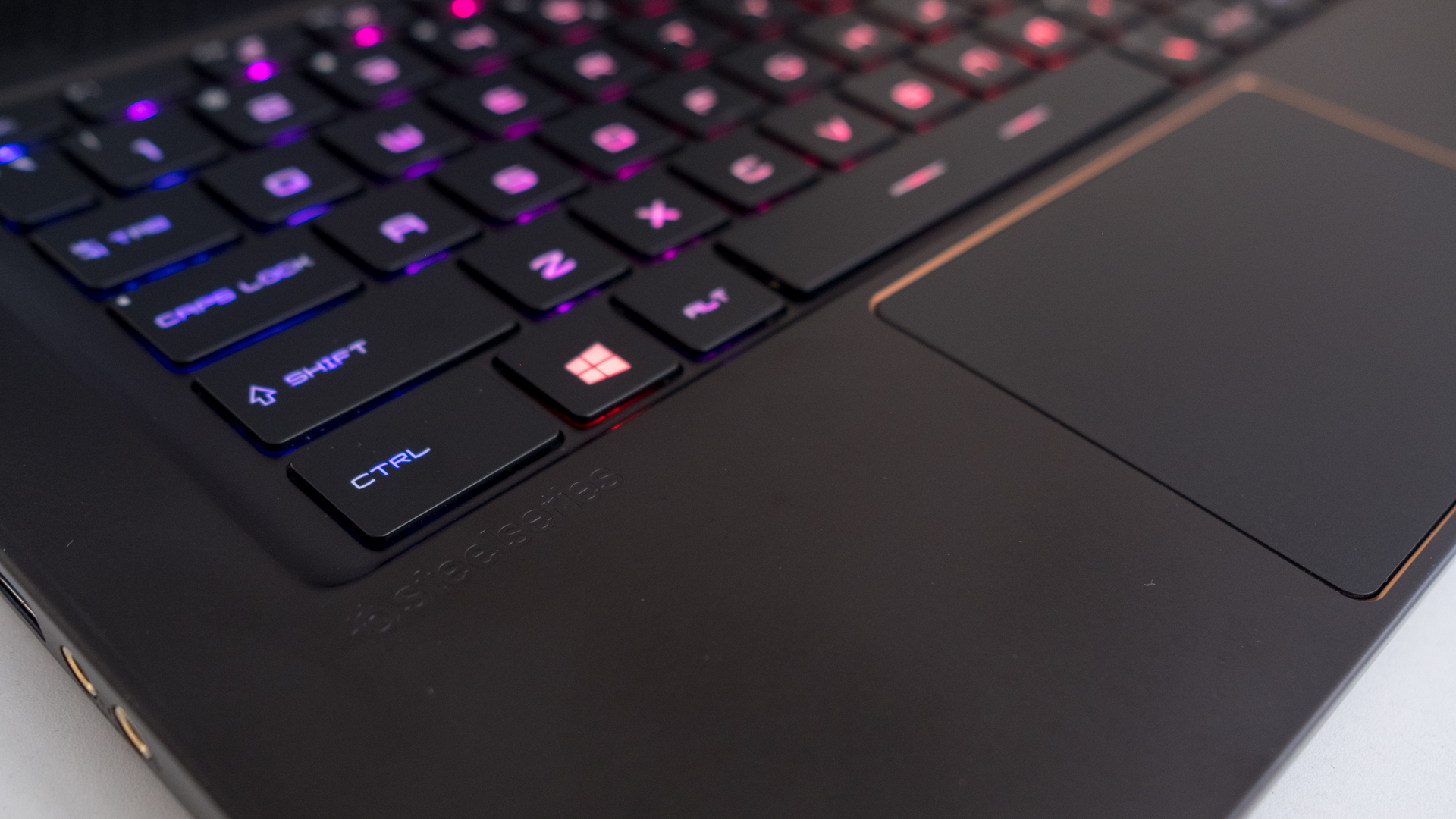

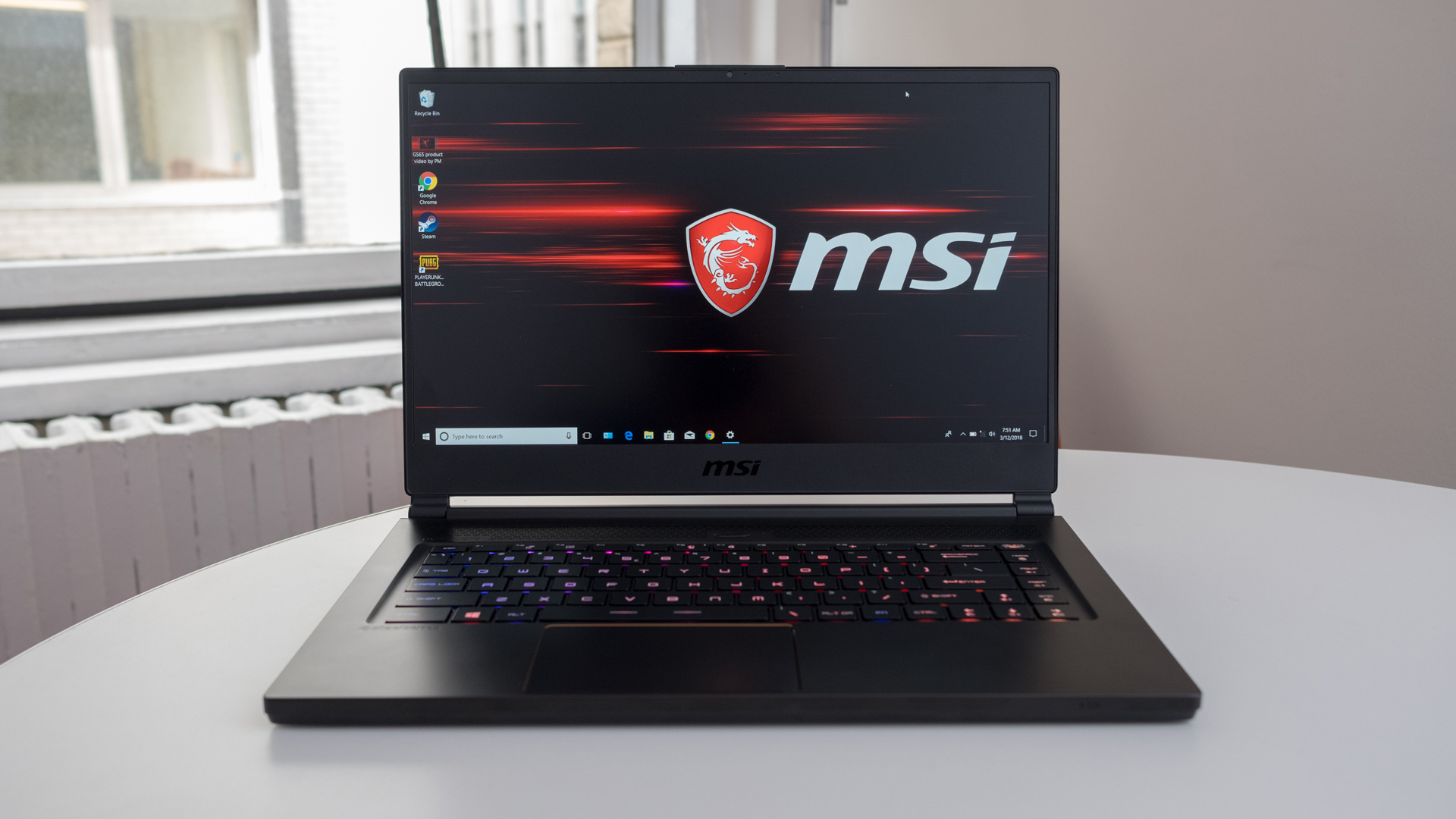
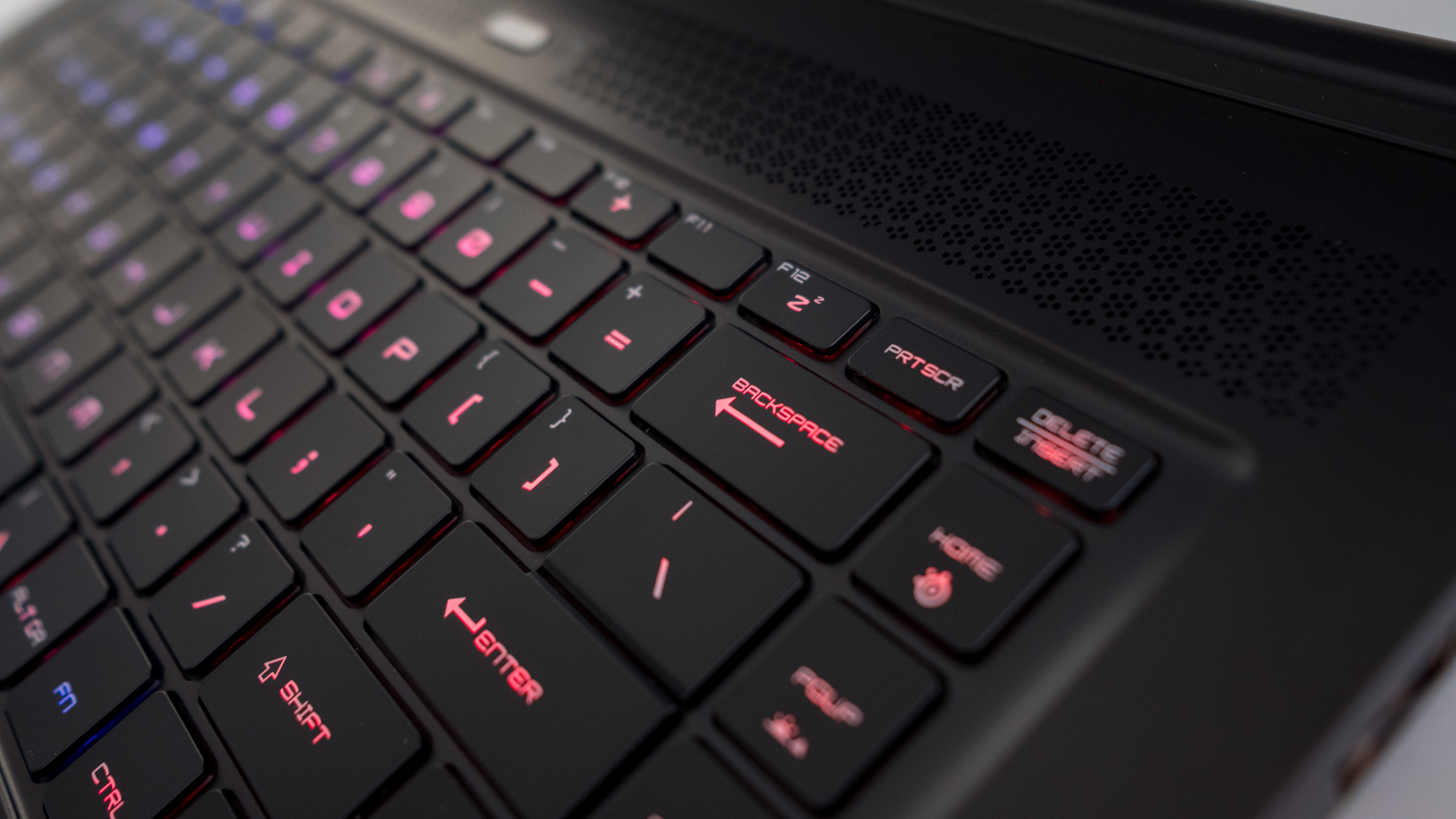
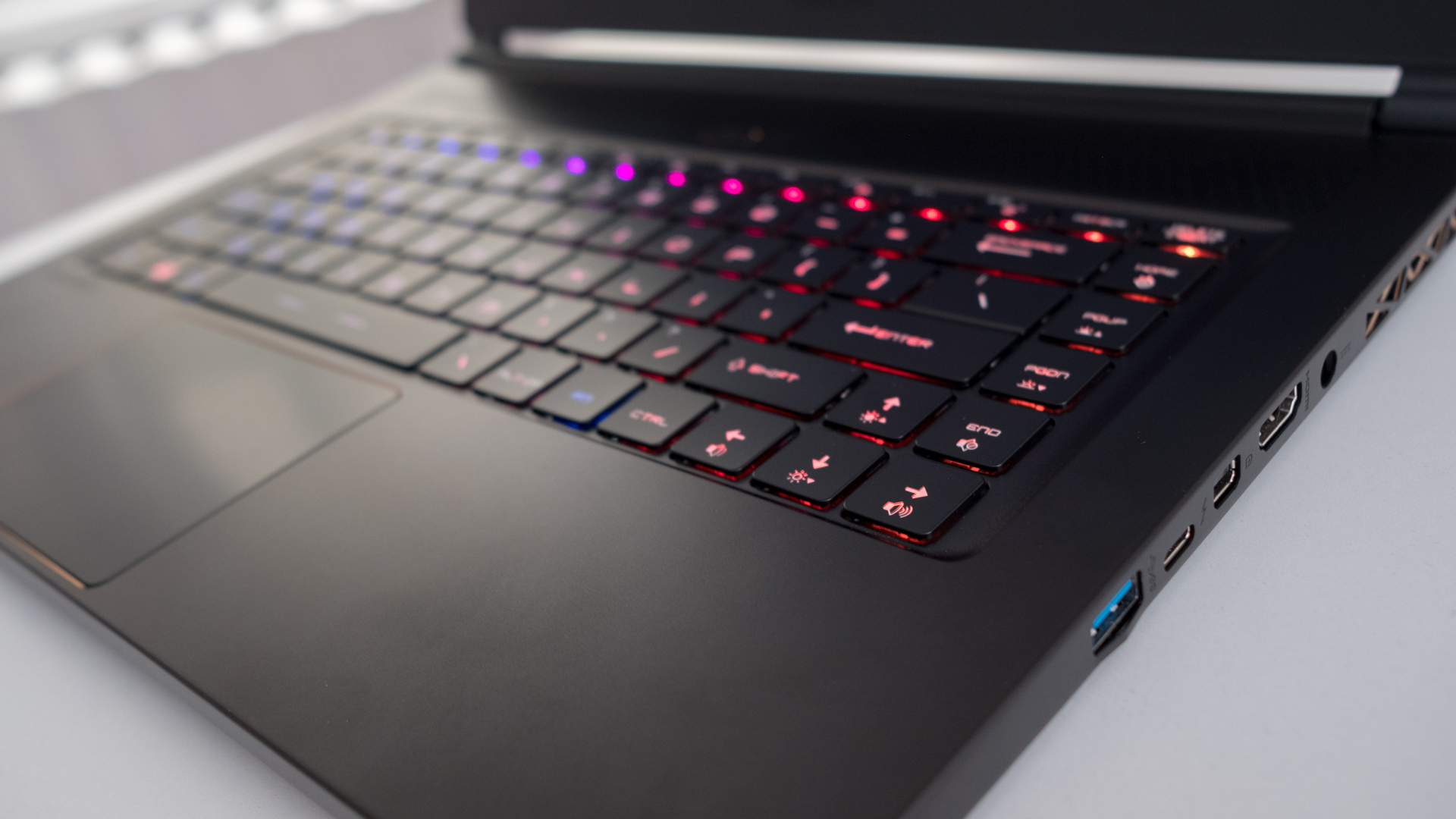
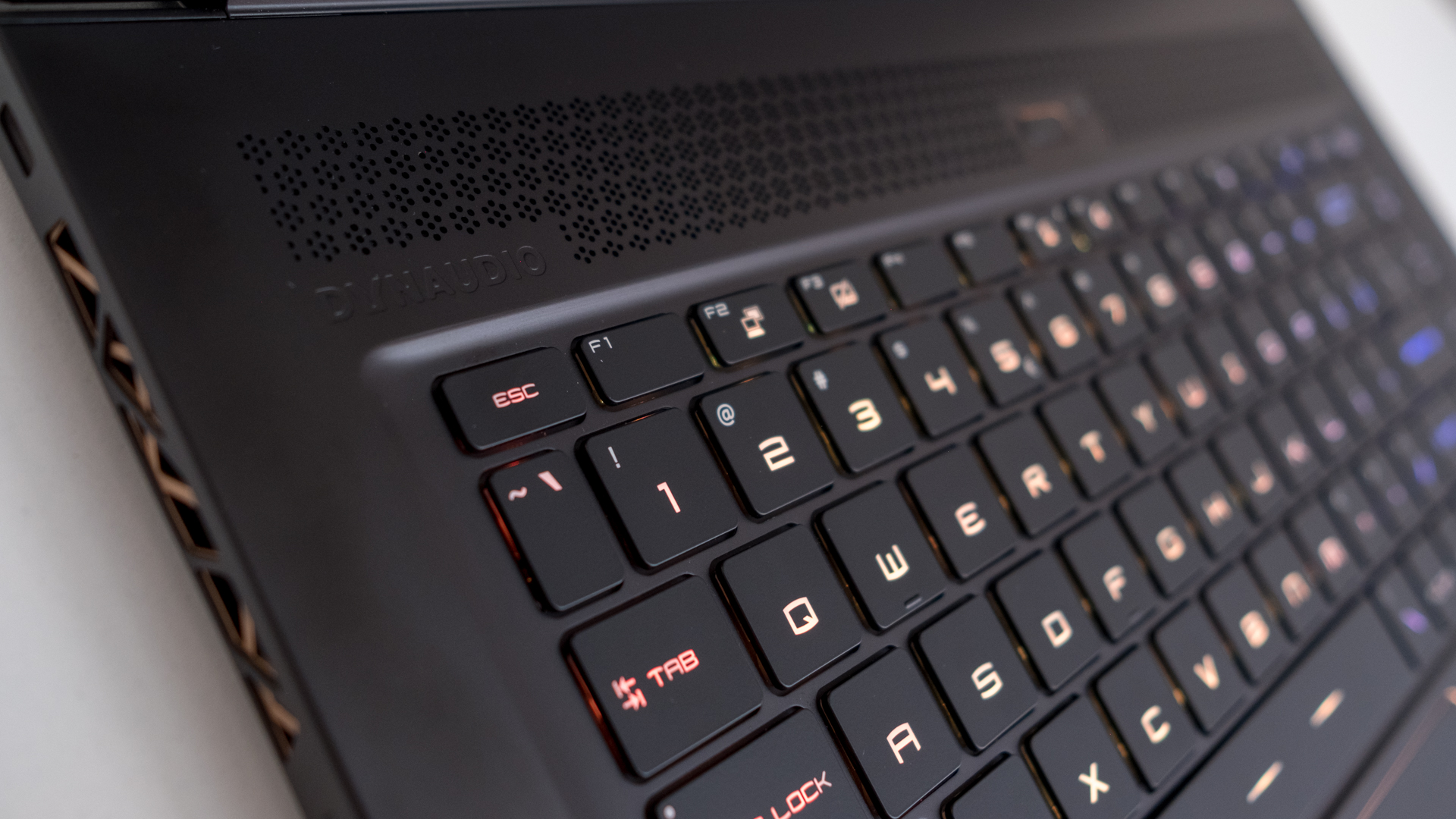
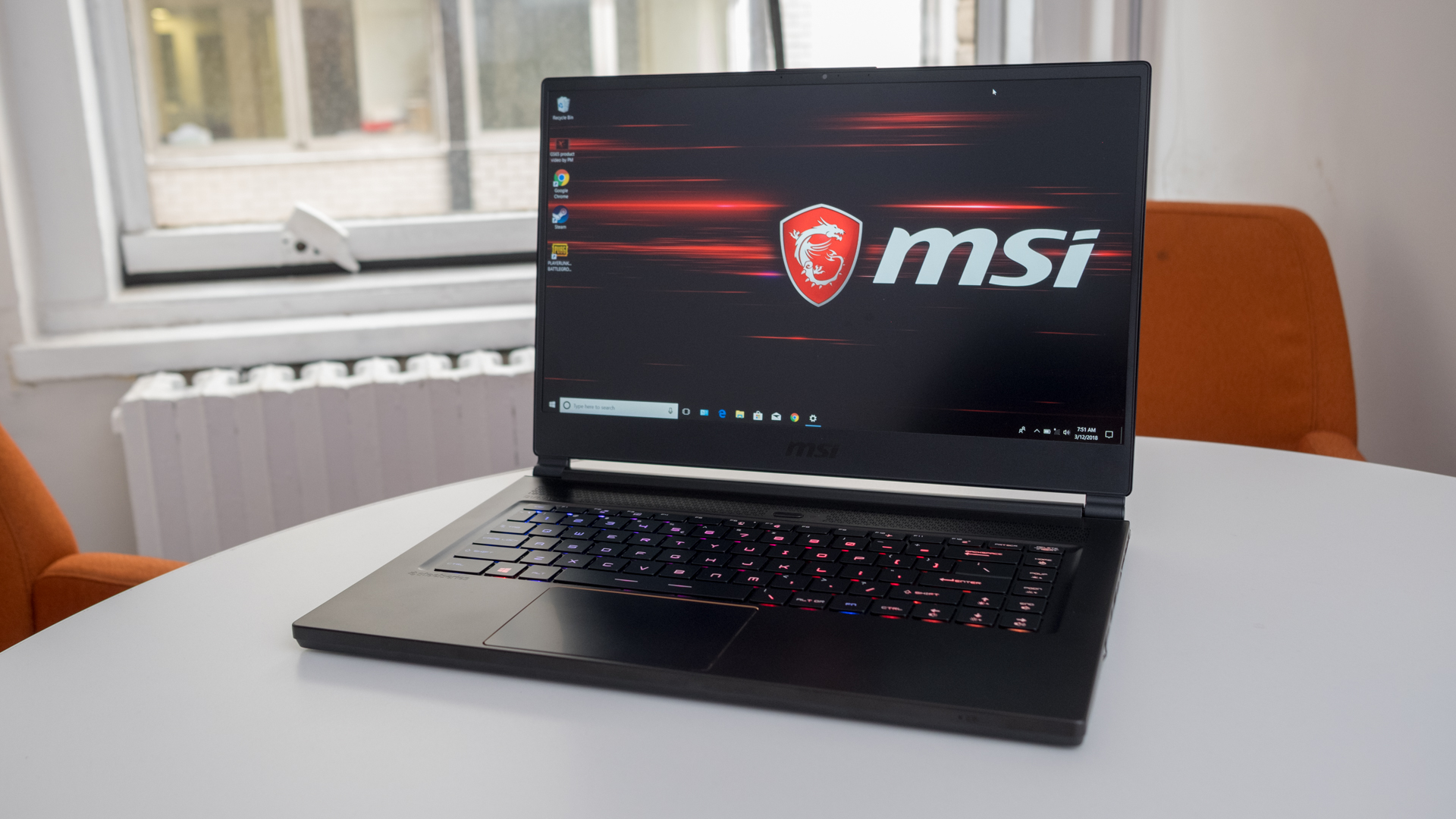
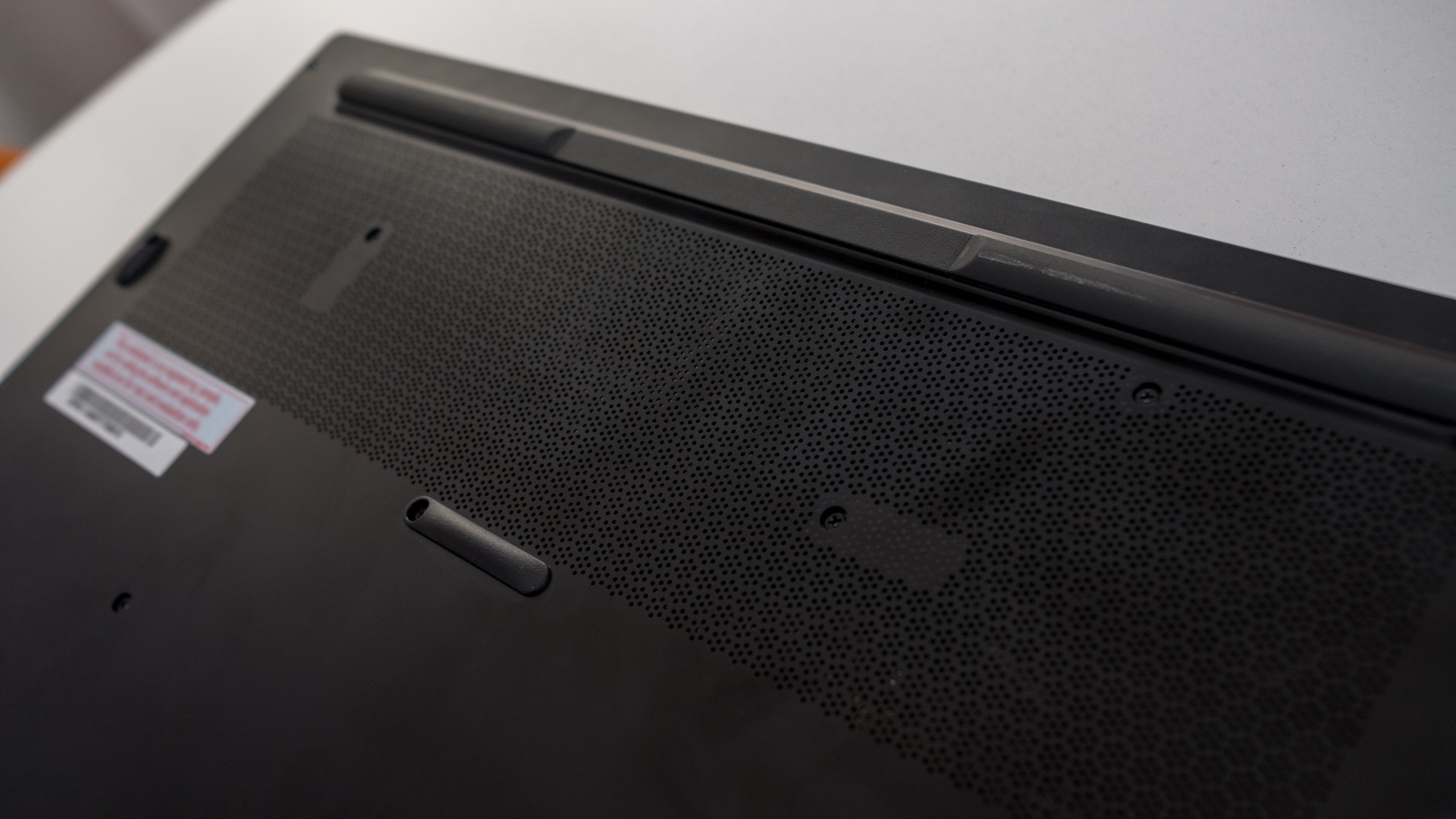

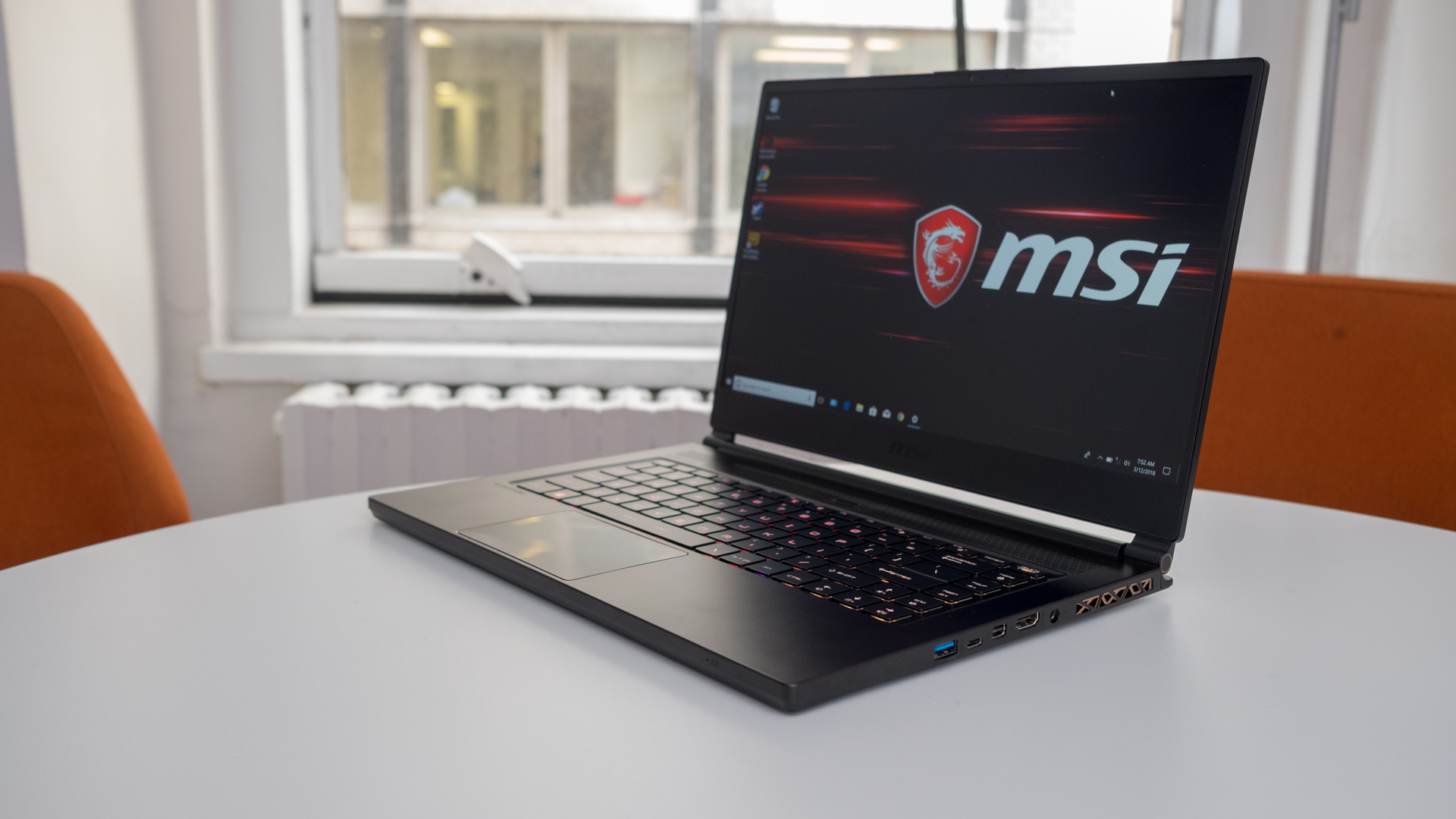

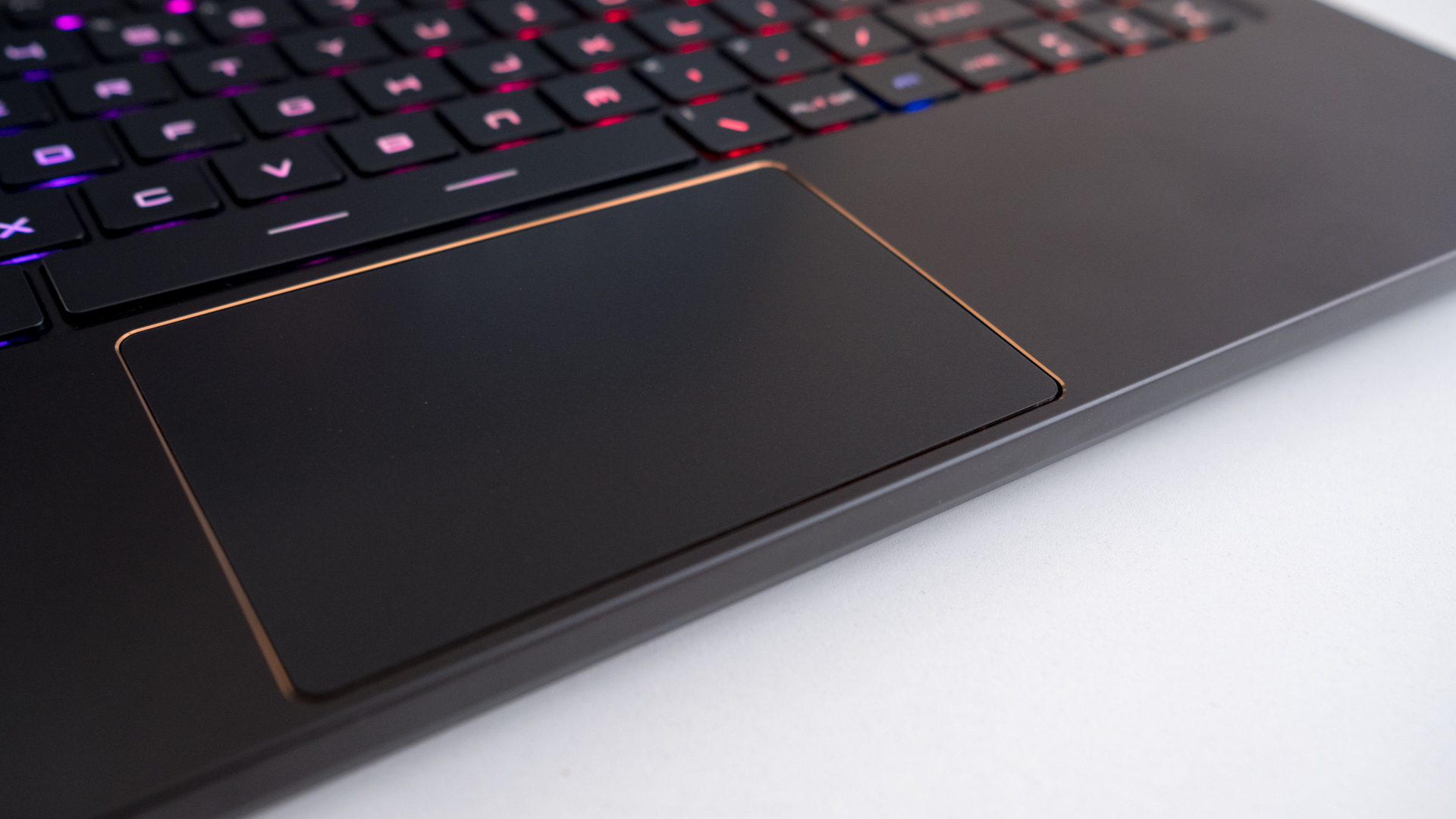
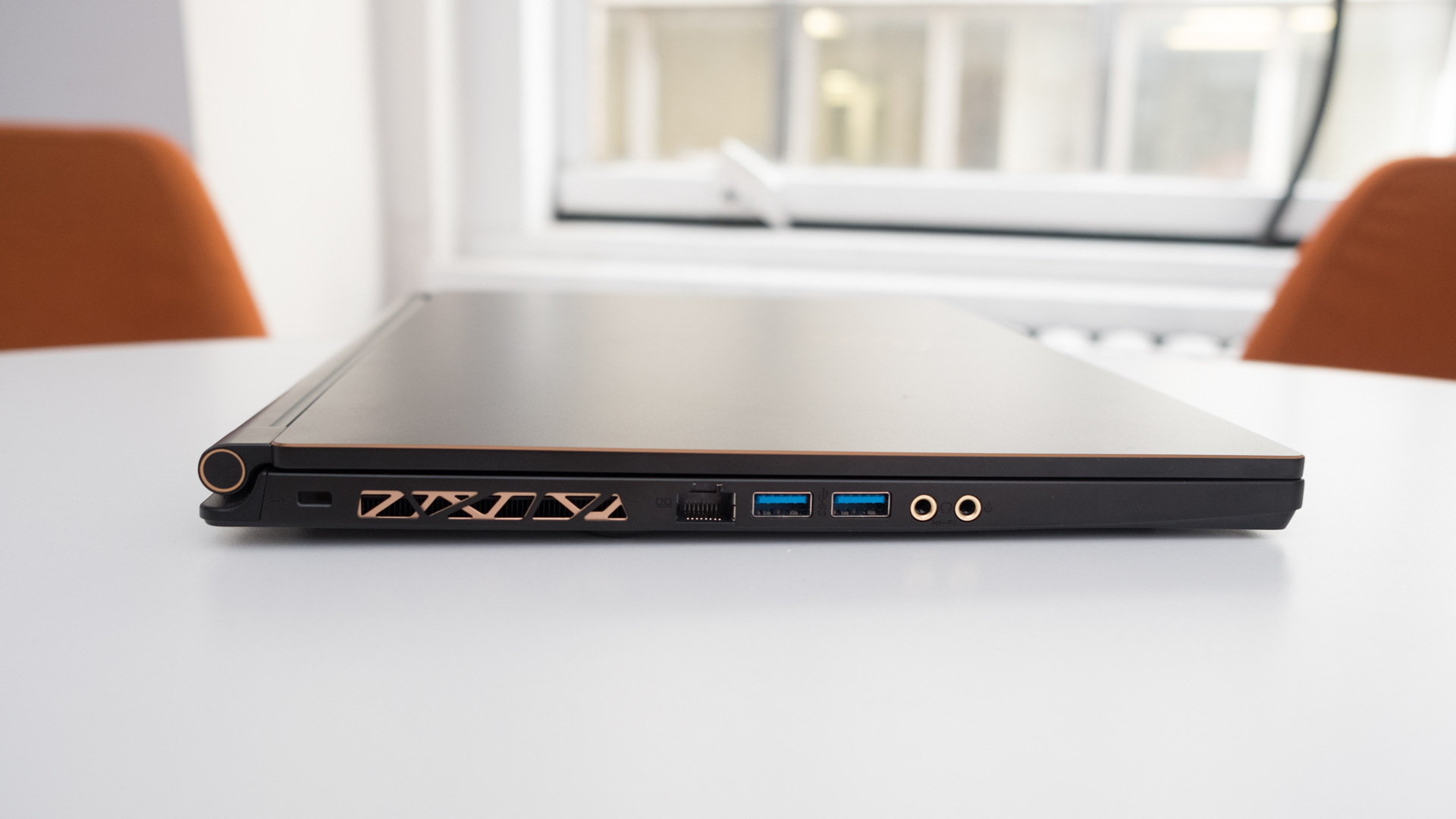

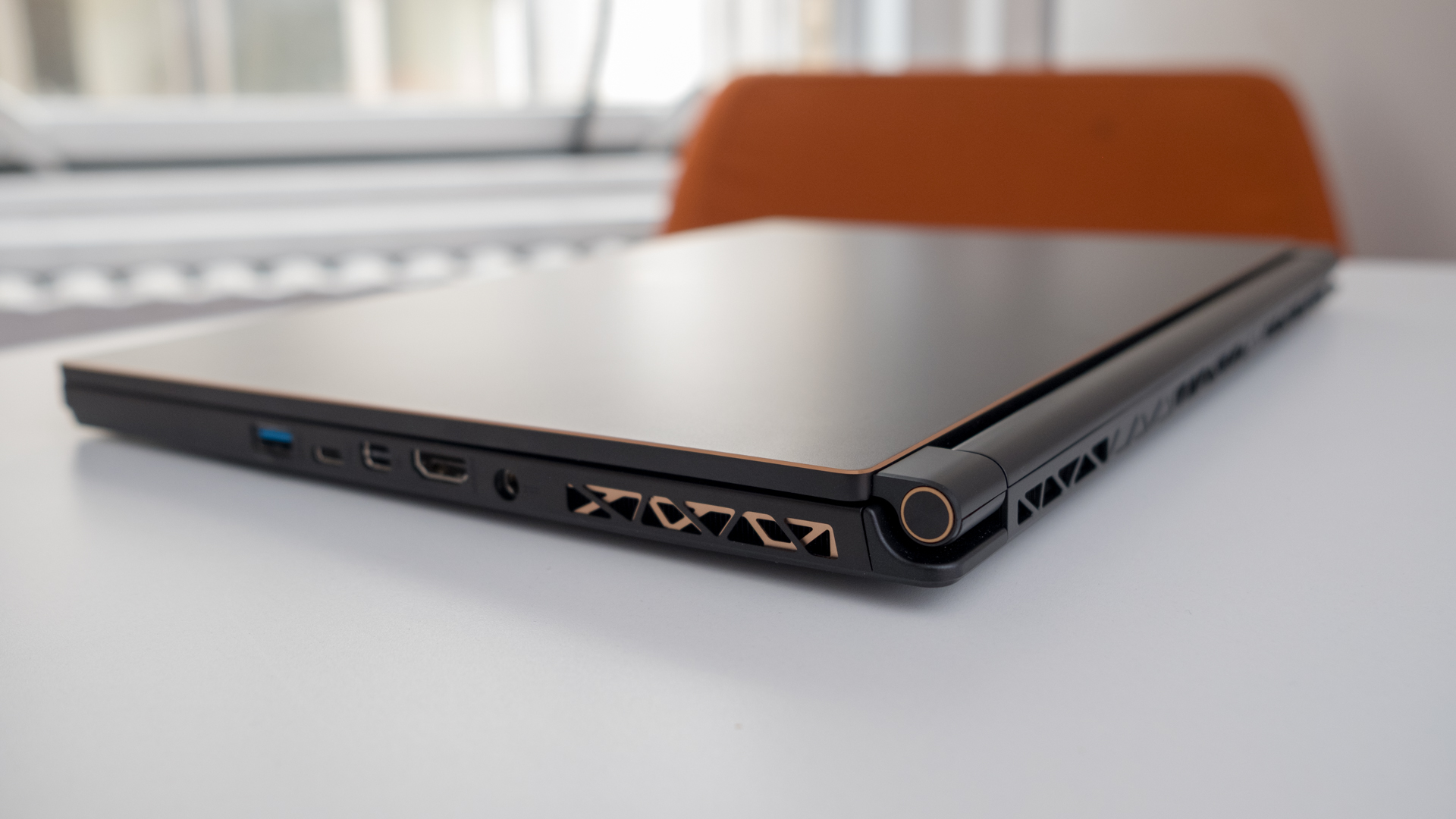

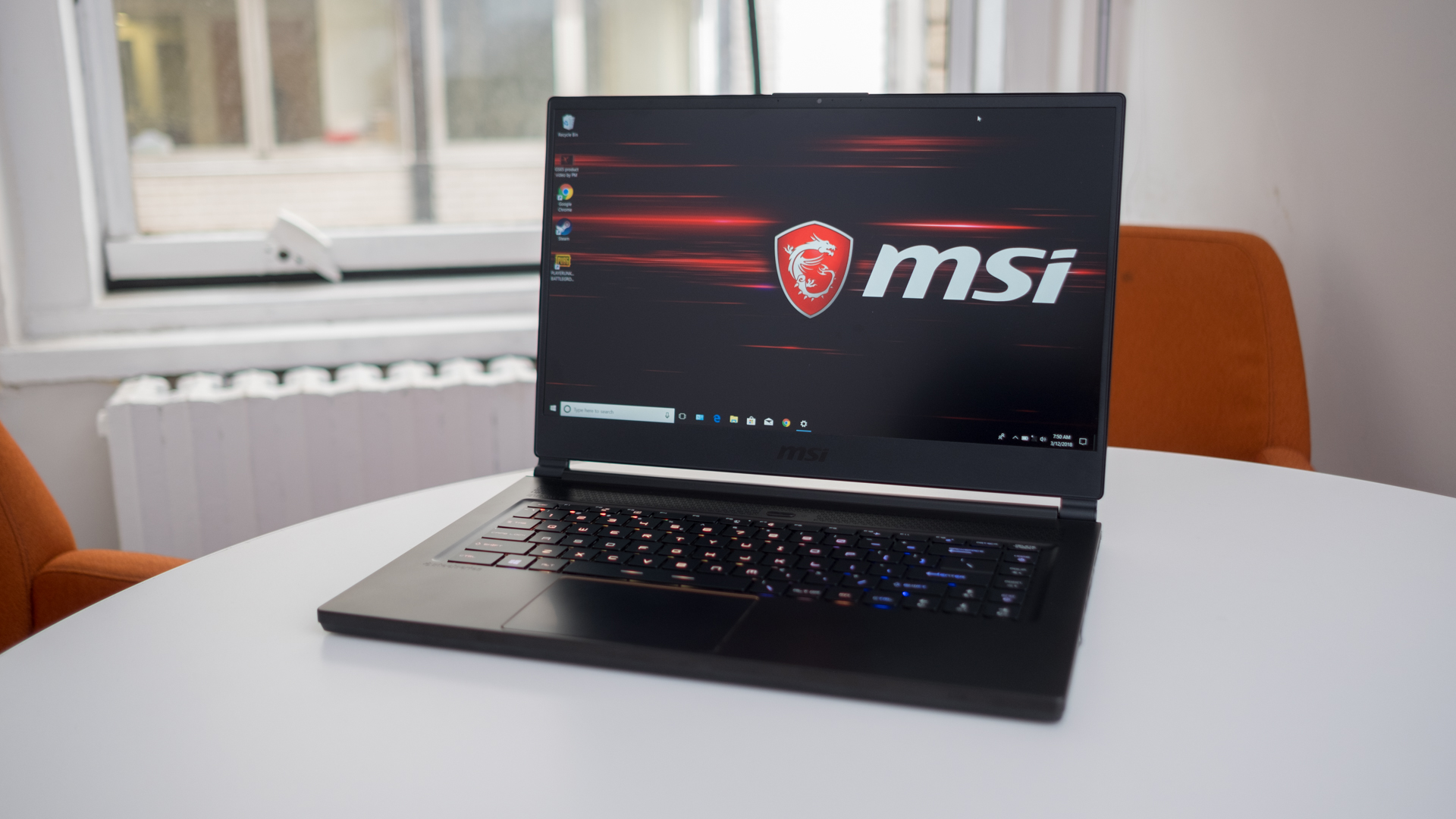
Design
MSI has thankfully gone in a different direction regarding the look and feel of its flagship thin-and-light gaming laptop, focusing on a device with far wider appeal. You won’t find stark angles or red LEDs all over this laptop – rather, you’ll find a sleek, all-black device with subtle gold accents on its lid, within its dual hinges and surrounding its touchpad.
Those gold accents are also found highlighting the laptop’s heat vents, but nowhere else on the brushed, black aluminum frame. The result is one of the most understated gaming laptops we’ve seen to date – one that we would have no problem whipping out in a coffee shop much less at a eSports tournament.
As for how the laptop feels, the GS65 Stealth weighs just 4.14 pounds (1.88kg) and measures a measly 0.69 inches (17.53mm) thin. The laptop fits just fine in our backpack and doesn’t weigh us down, which is impressive considering MSI tells us it could have gone even thinner and lighter but opted for an Ethernet port and the goal of eight hours of battery life.
That said, while MSI clearly made an effort to improve the size of its charging brick, its size negates a bit of that hard work. Regardless, this is still one of the most portable gaming laptops around.

Being just thin enough has afforded the laptop not only room for plenty of ports, but also a SteelSeries keyboard with plenty of travel and forceful feedback. Plus, the keyboard is RGB backlit with 16.7 million color options and SteelSeries’s GameSense, which changes the lighting behavior to sync with gameplay in supported games.
The glass-coated touchpad feels just fine, and doesn’t trigger movements when typing, telling us it has strong palm rejection.
Now, another reason we suspect MSI went a little thicker with the GS65 Stealth’s frame and heavier with its weight was to make room for its three-fan Cooler Boost Trinity thermal system. More on that in a bit. However, with that extra room, MSI didn’t loan much of it to the tiny and tinny speakers, which fire down from beneath its base. Just bring a headset and you’ll be fine – especially considering the amount of tuning MSI has done to improve that experience.

Display
On the other hand, we have little to no complaints about the brilliant, nearly bezel-free display MSI has embedded into the lid of this laptop. Specifically, the display achieves an 82% screen-to-body ratio with bezels just 4.9mm wide, cramming a 15.6-inch display into a 14-inch frame.
Even still, MSI managed to maintain a normal webcam position with a decent resolution of 720p, but back to that screen. Sadly there’s no Windows Hello facial recognition technology built into the webcam, there is a fingerprint reader built into the power button, and MSI tells us that its functionality will be unlocked in a future update.
Refreshing at 144Hz and with a 7ms response time and in-plane switching (IPS), this screen makes games like Warhammer: Vermintide 2 look simply sublime, producing little to no screen tearing when whipping around corners.
The screen is awfully bright as well, revealing the contents of dark corridors in games just fine at even 50% brightness. Plus, MSI’s True Color 2.0 produces color gamuts that meet 100% of Adobe RGB and close to 100% of sRGB standard, and also supports game-specific color modes as well as anti-blue light modes.
Another neat addition is the ability to turn the display contents upside down when the screen is bent 180 degrees. This should come in plenty handy for screen sharing during meetings or other collaborative endeavors.
Ultimately, this is the brightest, fastest and most color-rich display we’ve seen on an Nvidia Max-Q laptop yet. However, the lack of Nvidia G-Sync is a miss, as we’d love for the guarantee of silky smooth motion in games, though that is rarely – if ever – a problem we’ve found with the rig.
- 1
- 2
Current page: Introduction, price and design
Next Page Performance, battery life, features and verdictJoe Osborne is the Senior Technology Editor at Insider Inc. His role is to leads the technology coverage team for the Business Insider Shopping team, facilitating expert reviews, comprehensive buying guides, snap deals news and more. Previously, Joe was TechRadar's US computing editor, leading reviews of everything from gaming PCs to internal components and accessories. In his spare time, Joe is a renowned Dungeons and Dragons dungeon master – and arguably the nicest man in tech.
